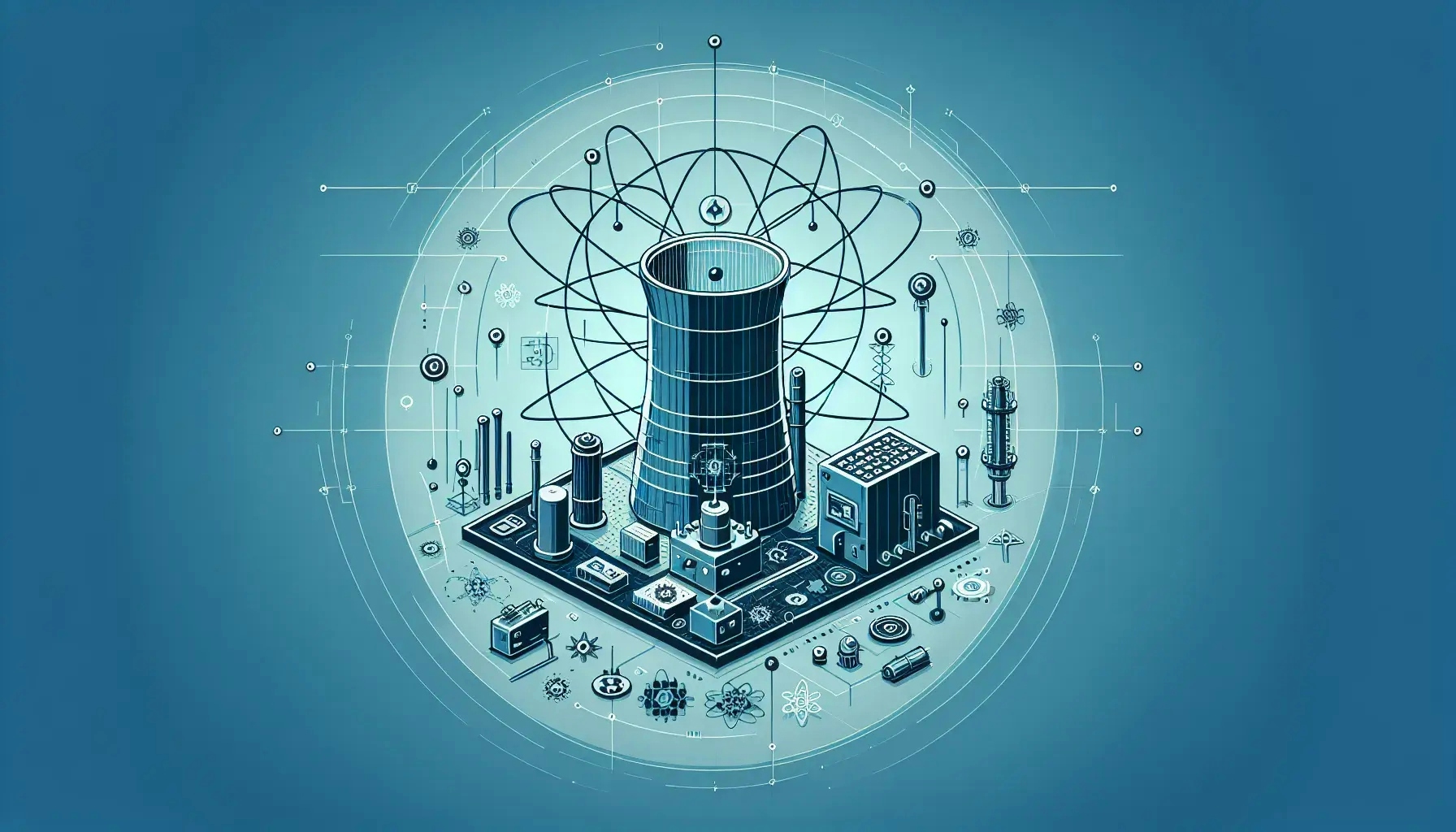The world of nuclear technology is ever-evolving, with new advancements and discoveries shaping the future of energy production. This blog post will delve into the most recent breakthroughs, exploring their implications and potential applications. From enhanced safety measures to increased efficiency, these advancements are revolutionizing the nuclear industry and paving the way for a more sustainable future.
The Rise of Small Modular Reactors
Small Modular Reactors (SMRs) are emerging as a significant advancement in nuclear technology. These compact, factory-built reactors promise to deliver nuclear power with enhanced safety and affordability. Unlike traditional nuclear reactors, SMRs can be constructed off-site and transported to their destination, reducing construction costs and timelines.
SMRs also offer increased safety due to their smaller size and advanced design features. For instance, many SMRs utilize passive safety systems that rely on natural phenomena such as gravity and convection, rather than mechanical or powered components. This reduces the risk of failure and enhances the reactor's resilience to external threats.
Moreover, the modular nature of SMRs allows for scalable power generation. Operators can add or remove modules as demand changes, providing a flexible and responsive energy solution. This adaptability makes SMRs an attractive option for regions with fluctuating power needs or limited grid infrastructure.
Advancements in Nuclear Fusion
Nuclear fusion, the process that powers the sun, has long been a goal for scientists and engineers. Unlike nuclear fission, which splits atoms to release energy, fusion combines light elements to form heavier ones, releasing vast amounts of energy in the process. The challenge lies in achieving the extreme conditions necessary for fusion to occur.
Recent advancements, however, have brought us closer to realizing this goal. High-powered lasers and magnetic confinement devices are now capable of achieving the high temperatures and pressures required for fusion. Additionally, advancements in materials science have led to the development of heat-resistant materials capable of withstanding the harsh conditions inside a fusion reactor.
While the road to commercial fusion power is still long, these advancements represent significant steps forward. The potential rewards of fusion power are immense, offering a virtually limitless, clean energy source with minimal waste.
Enhanced Safety Measures
Safety is paramount in the nuclear industry, and recent advancements have further bolstered the safety of nuclear power plants. One such advancement is the development of accident-tolerant fuels. These fuels can withstand higher temperatures and severe accident conditions, reducing the risk of fuel failure and subsequent radiation release.
Another significant safety advancement is the use of digital technology in nuclear power plants. Digital systems offer improved reliability, accuracy, and efficiency compared to their analog counterparts. They also enable real-time monitoring and predictive maintenance, helping to prevent failures before they occur.
Moreover, advancements in robotics have enabled safer and more efficient inspections and maintenance. Robots can access areas that are hazardous for humans, reducing exposure to radiation and improving worker safety.
Increased Efficiency and Sustainability
The drive for greater efficiency and sustainability has led to numerous advancements in nuclear technology. High-temperature gas reactors, for instance, can operate at higher temperatures than conventional reactors, improving thermal efficiency and reducing waste heat.
Another promising advancement is the development of advanced fuel cycles. These cycles aim to extract more energy from nuclear fuel and reduce the volume and toxicity of nuclear waste. Some advanced fuel cycles even propose to recycle spent nuclear fuel, further enhancing sustainability.
Moreover, research into advanced reactor designs, such as fast reactors and molten salt reactors, offers the potential for significant efficiency improvements. These designs can operate at higher temperatures and pressures, enabling more efficient power generation and potentially reducing waste.
The Role of Artificial Intelligence
Artificial Intelligence (AI) is making waves in the nuclear industry, offering new ways to enhance safety, efficiency, and reliability. AI can analyze vast amounts of data to identify patterns and trends, enabling predictive maintenance and real-time monitoring of nuclear power plants.
AI can also assist in the design and optimization of nuclear reactors. By simulating different scenarios and configurations, AI can help engineers identify the most efficient and safe reactor designs. Additionally, AI can aid in the management of nuclear waste, optimizing storage and disposal processes to enhance safety and sustainability.
Moreover, AI can play a crucial role in nuclear security. By monitoring data and detecting anomalies, AI can help prevent unauthorized access and detect potential threats, bolstering the security of nuclear facilities.
The Future of Nuclear Technology
The future of nuclear technology is bright, with numerous advancements on the horizon. One such advancement is the development of thorium reactors. Thorium is more abundant than uranium and produces less long-lived radioactive waste, making it an attractive alternative for nuclear power.
Another promising area of research is the use of nuclear power for space exploration. Nuclear propulsion could enable faster and more efficient space travel, opening up new possibilities for exploration and colonization.
Moreover, the continued development of SMRs and advanced reactor designs promises to further enhance the safety, efficiency, and sustainability of nuclear power. As these technologies mature, they could play a crucial role in meeting our future energy needs and combating climate change.
Summing Up the Progress in Nuclear Technology
The landscape of nuclear technology is rapidly changing, with new advancements offering unprecedented opportunities for safe, efficient, and sustainable power generation. From SMRs to nuclear fusion, these breakthroughs are reshaping the industry and paving the way for a cleaner, more sustainable future. As we continue to innovate and push the boundaries of what's possible, the potential of nuclear technology becomes ever more exciting.

